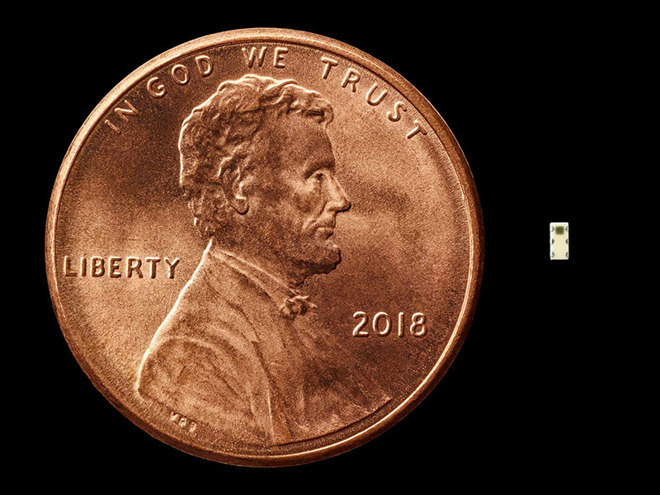Executives from Amazon and Super Micro on Monday joined Apple CEO Tim Cook in calling for the retraction of a Bloomberg Businessweek story claiming the companies were impacted by a Chinese spy operation.
Source: Bloomberg Businessweek
In rare form, Cook in an interview last week slammed Bloomberg for an investigation claiming some 30 companies, including Apple and Amazon, were victims of a complex hardware hack involving spy chips embedded onto network architecture supplied by Super Micro.
"There is no truth in their story about Apple," Cook said in an interview with BuzzFeed News last week. "They need to do that right thing and retract it."
Citing information from 17 separate sources, Bloomberg claims Chinese operatives managed to sneak a microchip smaller than a grain of rice onto motherboards that ended up in Apple and Amazon server farms. Allegedly designed by the Chinese military, the chip acted as a "stealth doorway onto any network" and offered "long-term stealth access" to attached computer systems.
Apple immediately refuted details of the report and ultimately issued a strongly worded statement denying the allegations. The company said a wide-reaching investigation into Bloomberg's claims revealed no evidence of the described hardware tampering.
Cook said much the same last week.
"I was involved in our response to this story from the beginning. I personally talked to the Bloomberg reporters along with Bruce Sewell who was then our general counsel," Cook said. "We were very clear with them that this did not happen, and answered all their questions. Each time they brought this up to us, the story changed and each time we investigated we found nothing."
Following Cook's lead, Amazon Web Services CEO Andy Jassy tweeted a brief statement on the matter.
"[Cook] is right. Bloomberg story is wrong about Amazon, too," he said. "They offered no proof, story kept changing, and showed no interest in our answers unless we could validate their theories. Reporters got played or took liberties. Bloomberg should retract."
Super Micro CEO Charles Liang, whose motherboards are at the center of the kerfuffle, echoed that sentiment in a statement to CNBC's Steve Kopack.
"Bloomberg's recent story has created unwarranted confusion and concern for our customers, and has caused our customers, and us, harm," Liang said. "Bloomberg should act responsibly and retract its unsupported allegations that malicious hardware components were implanted on our motherboards during the manufacturing process."
Liang notes the story suggests a large number of motherboards were affected by the breach, though Bloomberg failed to produce hard evidence of the hack. Indeed, security researcher Joe Fitzpatrick, one of the article's lone named sources, said the publication was unable to provide a single photograph of the chip in question.
Super Micro on Monday said it will continue to investigate the allegations by conducting a "complicated and time-consuming review" of its supply chain.
For its part, Bloomberg stands by its reporting. In a statement to AppleInsider earlier this month the publication said its "reporters and editors thoroughly vet every story before publication, and this was no exception."
 Mikey Campbell
Mikey Campbell







-m.jpg)






 Charles Martin
Charles Martin
 Christine McKee
Christine McKee
 Wesley Hilliard
Wesley Hilliard
 Malcolm Owen
Malcolm Owen
 Andrew Orr
Andrew Orr
 William Gallagher
William Gallagher
 Sponsored Content
Sponsored Content








22 Comments
Bloomberg need to retract their Vaporware or prove it. I have already stopped reading any of their news (fake or not).
I agree. Show me a picture Bloomberg.
A picture wouldn’t compromise a confidential source. If this story by Bloomberg wasn’t complete B.S. they’d have dozens.
Bloomberg is embarrassing themselves, come clean with the oops. This isn’t going to go away. They’ve done material harm to Super Micro.
Bloomberg is going to be sued, and rightly so.
I don’t see anything influencing Bloomberg into publishing tangible evidence until this impacts their bottom line. If they stick to their guns, we could see some changes to libel laws or SEC & FTC access to confidential sources and data.